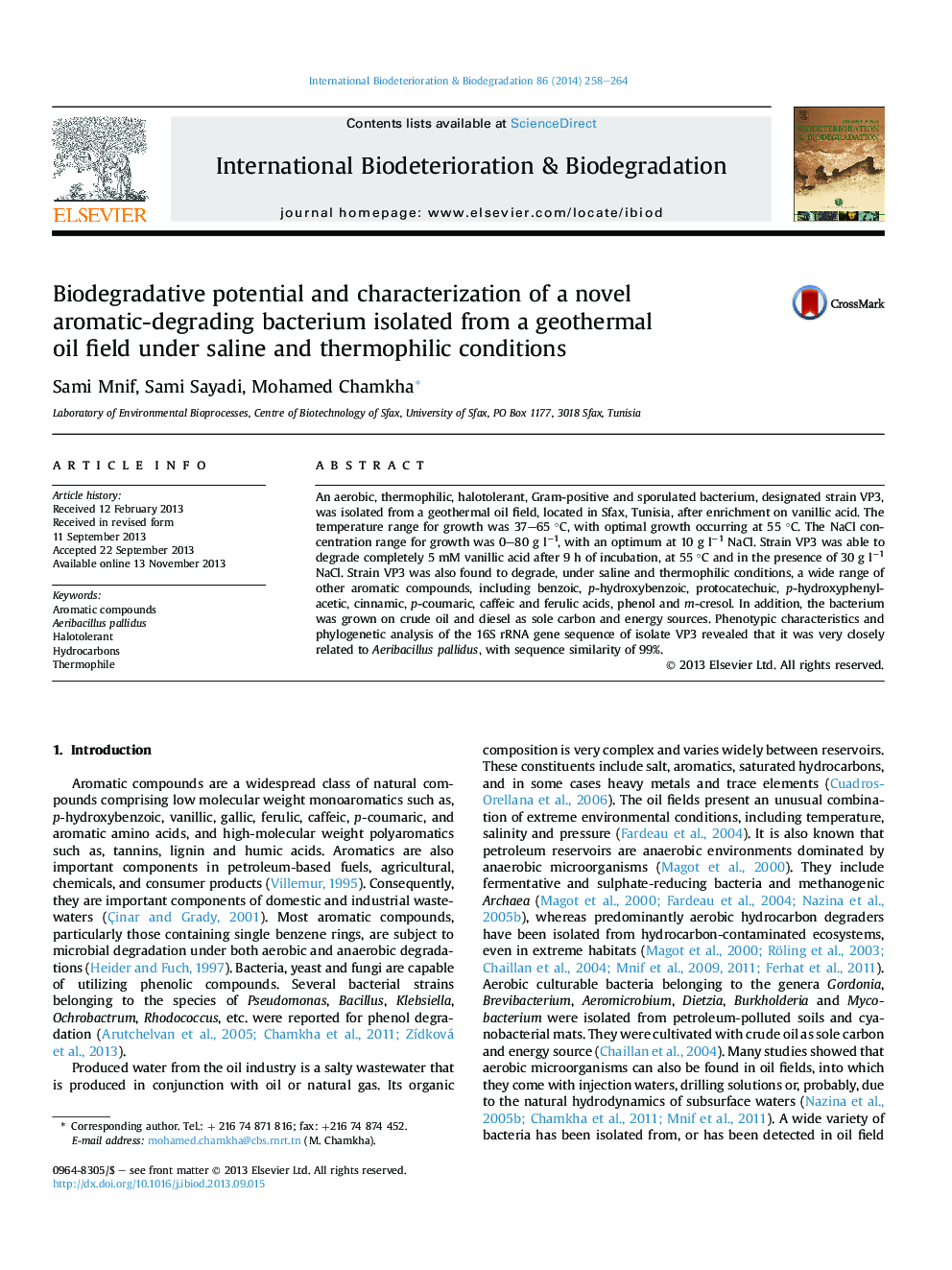| Article ID | Journal | Published Year | Pages | File Type |
|---|---|---|---|---|
| 4364810 | International Biodeterioration & Biodegradation | 2014 | 7 Pages |
•An aerobic, thermophilic and halotolerant bacterium, was isolated from an oil field.•Strain VP3 degraded 5 mM vanillic acid after 9 h, at 55 °C and 30 g l−1 NaCl.•Strain VP3 degraded also a wide range of other aromatics.•Strain VP3 was closely related to Aeribacillus pallidus (rRNA 16S similarity of 99%).•Strain VP3 may well prepare the ground for its application in bioremediation.
An aerobic, thermophilic, halotolerant, Gram-positive and sporulated bacterium, designated strain VP3, was isolated from a geothermal oil field, located in Sfax, Tunisia, after enrichment on vanillic acid. The temperature range for growth was 37–65 °C, with optimal growth occurring at 55 °C. The NaCl concentration range for growth was 0–80 g l−1, with an optimum at 10 g l−1 NaCl. Strain VP3 was able to degrade completely 5 mM vanillic acid after 9 h of incubation, at 55 °C and in the presence of 30 g l−1 NaCl. Strain VP3 was also found to degrade, under saline and thermophilic conditions, a wide range of other aromatic compounds, including benzoic, p-hydroxybenzoic, protocatechuic, p-hydroxyphenylacetic, cinnamic, p-coumaric, caffeic and ferulic acids, phenol and m-cresol. In addition, the bacterium was grown on crude oil and diesel as sole carbon and energy sources. Phenotypic characteristics and phylogenetic analysis of the 16S rRNA gene sequence of isolate VP3 revealed that it was very closely related to Aeribacillus pallidus, with sequence similarity of 99%.
